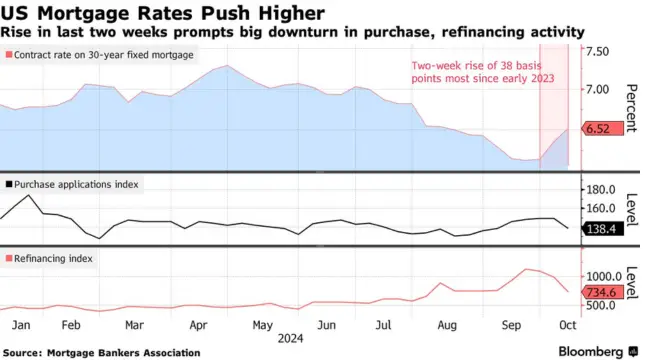Smart Tips to Avoid Home Buying Regrets – Learn Before You Buy!
Are you planning to buy your first home? Do you think budgeting for the down payment and monthly mortgage is enough? Are you ready to trust everything a real estate agent tells you?
If so, you might be walking into some costly mistakes. Buying a home is one of the biggest financial decisions you’ll ever make, and without proper planning, it can turn into a financial burden. First-time home buyers often get caught up in the excitement and overlook critical details that can cost them thousands of dollars.
In this guide, we’ll cover the 10 most common mistakes homebuyers make and how you can avoid them to make a smart, informed decision.
2. Mistakes That Can Cost You Thousands
1. Budgeting Mistakes – Don’t Just Look at the Home Price
Many first-time buyers focus only on the property’s price and their monthly mortgage payments, assuming that if they can afford the EMI, they are financially prepared. However, owning a home comes with several hidden costs that can disrupt your budget if not planned for in advance.
Common Budgeting Mistakes:
- Ignoring hidden costs like closing fees, property taxes, homeowner’s insurance, and maintenance expenses
- Underestimating home repairs and ongoing maintenance
- Focusing only on affording the monthly mortgage instead of considering long-term financial stability
How to Avoid This Mistake:
- Create a detailed homeownership budget that includes all costs beyond just the mortgage
- Set aside an emergency fund for unexpected repairs and maintenance
- Research property taxes and insurance rates in your area before finalizing a purchase
2. Loan & Financing Mistakes – Choose the Right Loan
Many first-time buyers start house hunting before securing a loan, which can be a costly mistake. If you haven’t obtained pre-approval or have only considered one lender, you risk facing loan delays or accepting unfavorable loan terms with high interest rates.
Common Loan & Financing Mistakes:
- House hunting without pre-approval – Even if you find your dream home, your loan approval may take time, and someone else might purchase it before you
- Relying on a single lender – Not comparing multiple loan options may result in higher interest rates or poor loan terms
- Not understanding loan types – Failing to distinguish between fixed-rate and adjustable-rate mortgages and choosing the wrong one
- Ignoring down payment and credit score requirements – A low credit score can make loan approval difficult or result in a higher interest rate
How to Avoid This Mistake:
- Get pre-approved before house hunting to have a clear idea of your budget
- Compare multiple lenders to secure the best interest rate and loan terms
- Check and improve your credit score before applying for a loan
- Understand the differences between fixed-rate and adjustable-rate mortgages to choose the best option for your financial situation
3. Not Doing Proper Market Research – Risk of Overpaying
One of the biggest mistakes first-time homebuyers make is not researching the market before making a purchase. Without understanding local property values, market trends, and nearby home prices, you might end up overpaying for a home that is worth much less.
Common Market Research Mistakes:
- Not comparing prices of nearby properties – Buying a house without checking what similar homes in the area are selling for
- Rushing into a deal without understanding market trends – Not knowing whether it’s a buyer’s market or a seller’s market, which can affect pricing and negotiation power
- Ignoring future property value potential – Buying in an area without checking resale value, infrastructure development, and demand trends
- Skipping a professional appraisal – Relying only on the seller’s listed price instead of verifying the actual market value
How to Avoid This Mistake:
- Research and compare prices of similar properties in the same area
- Analyze market trends to determine if it’s the right time to buy or if waiting could get you a better deal
- Check future development plans to see if the area’s property values are expected to rise or decline
- Hire a professional appraiser to get an accurate valuation of the property before making an offer

4. Skipping Home Inspection – Ignoring Hidden Problems
Many first-time buyers make the mistake of not getting a professional home inspection before finalizing the purchase. A house may look perfect from the outside, but hidden structural, plumbing, or electrical issues can lead to expensive repairs after you move in.
Common Home Inspection Mistakes:
- Not hiring a professional home inspector – Trusting the seller’s word instead of conducting a thorough inspection
- Focusing only on aesthetics – Ignoring potential structural, plumbing, roofing, or electrical problems because the house looks good
- Skipping inspection to close the deal faster – Some buyers rush to finalize the purchase without checking for hidden defects
- Not reviewing the inspection report properly – Ignoring critical issues that could lead to major expenses later
How to Avoid This Mistake:
- Always hire a certified home inspector to evaluate the house before finalizing the deal
- Check for major issues like roofing, plumbing, electrical wiring, and foundation problems
- Go through the inspection report carefully and negotiate with the seller for necessary repairs before closing
- Avoid buying a home with serious structural issues, even if the price seems like a great deal
5. Making an Emotional Decision – A Practical Approach is Necessary
Buying a home is an emotional experience, but letting emotions overpower logic can lead to costly mistakes. Many first-time buyers get attracted to beautiful interiors, a nice balcony, or a stylish kitchen without considering practical factors like location, commute, and long-term investment value.
Common Emotional Decision Mistakes:
- Falling in love with the aesthetics – Choosing a home just because it looks perfect, without checking its practicality
- Ignoring daily commute and convenience – Buying a home far from work or essential amenities, leading to long-term inconvenience
- Not considering resale value – Purchasing a property in an area with low demand, which might not appreciate in value
- Overstretching the budget due to emotional attachment – Paying more than you can afford just because you love a house
How to Avoid This Mistake:
- Think beyond aesthetics – Ensure the home meets practical needs like commute, schools, hospitals, and grocery stores
- Consider long-term value – Research the resale potential of the property before making a decision
- Set a realistic budget and stick to it – Avoid emotional overspending on features that aren’t essential
- List your priorities before house hunting – Focus on factors that impact everyday life, not just appearance
6. Not Researching the Neighborhood and Location
Many first-time buyers focus only on the house itself and ignore the importance of the neighborhood and location. Even if a home looks perfect and is available at a lower price, a bad location can lead to safety concerns, poor quality of life, and low resale value in the future.
Common Neighborhood & Location Mistakes:
- Not checking crime rates – Buying in an area with high crime, leading to safety risks and difficulty in selling later
- Ignoring schools, hospitals, and amenities – Poor infrastructure can reduce the convenience and desirability of the location
- Overlooking traffic and commute times – Heavy traffic or lack of public transport can make daily life difficult
- Choosing a location just because it’s cheap – Low-cost areas may have lower demand, affecting property appreciation and resale value
- Not researching future development plans – Some areas may decline due to poor city planning or lack of investment in infrastructure
How to Avoid This Mistake:
- Check crime rates in the area using local police websites or online crime maps
- Research nearby schools, hospitals, grocery stores, and public transport options
- Visit the neighborhood at different times of the day to check traffic conditions and noise levels
- Look at real estate trends in the area to ensure property values are stable or increasing
- Consider future development plans – Areas with upcoming infrastructure projects can offer better appreciation over time
7. Ignoring Future Planning – Think Long-Term
Some people buy a house only thinking about their current needs. They don’t think about how their life might change in the next 5-10 years.
For example:
- What if your family grows — like having kids or parents moving in?
- What if you get a job in a different city?
- What if you need a home office later?
If you don’t plan for these things, you might outgrow your house too soon or face problems later.
Always think long-term before buying. Choose a home that fits both your present and future needs.
8️. Taking Paperwork & Legal Issues Lightly
Many people ignore important legal checks when buying property — and that can cause big trouble later.
For example:
- They don’t check the title deed properly to confirm if the seller is the real owner.
- They don’t look into past ownership records or whether the property has any legal disputes.
If there’s a problem with ownership or the property is under dispute, you might lose your money or face court issues later.
Always verify all documents, check legal records, and if needed, take help from a property lawyer before finalizing anything.
9️. Misjudging Monthly Expenses
Many people only think about the EMI (loan payment) while buying a home, but forget about other regular costs.
For example:
- Utility bills (electricity, water, gas)
- HOA fees (if it’s a gated community or apartment)
- Maintenance costs (repairs, cleaning, security, etc.)
They also don’t plan for long-term affordability — like what if income changes or expenses increase in the future?
So, always calculate the total monthly cost, not just the loan. Make sure it fits your budget now and in the long run.
10. Choosing the Wrong Real Estate Agent – Or No Agent at All
Some people end up dealing with fake or dishonest agents who only care about their commission, not the buyer’s benefit.
Others try to handle everything on their own — without any experience — which can lead to mistakes or even fraud.
It’s important to choose a trustworthy, experienced, and verified real estate agent who can guide you properly, check all paperwork, and protect you from scams.
Conclusion
- Always plan your budget wisely and think about your future needs.
- Do proper market research, compare loans, and never skip a home inspection.
- Carefully check all legal documents and paperwork before buying.
- Make practical decisions — don’t just buy based on emotions.
If you avoid these 10 common mistakes, buying a home will become a smart and secure investment for your future!


